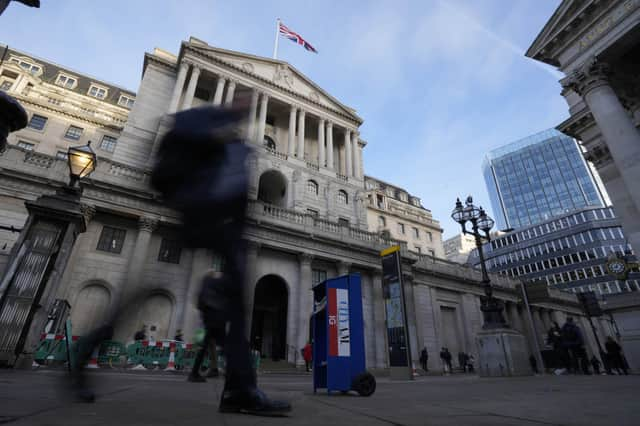Esmond Birnie: The painful rise in interest rates is needed to constrain inflation


The Bank of England Monetary Policy Committee (MPC) yesterday raised the bank’s interest rate for the 10th time in little over one year.
Back in December 2021 rates were only 0.1%. Now they are 4%. A further increase to either 4.25% or 4.5%is likely to follow next month (or soon thereafter). At that point we may reach relative stability.
Advertisement
Hide AdAdvertisement
Hide AdA combination of factor make this painful increase necessary. Inflation continues to be far above the 2% target. That inflation problem is part international (oil prices, the Russian invasion of Ukraine) but partly domestic – a threatening wage-price spiral, the fact that the bank held off for so long in beginning to push up rates, the extent to which UK money supply was boosted to help pay for the recovery from the previous recession/Banking Crisis and then Covid in 2020.


It is important to remember that US rates also increased this week. The US rate is now 4.75% – to some degree the Bank of England is constrained to follow suit, less we have a exchange rate slide (and September of last year illustrated the dangers of that happening).
Taking UK-wide averages, someone on a 25 year (two year fixed rate) mortgage for £200,000 would now be coming off at an interest rate of about 2.5% but will probably have to renew at just over 5.4%. Monthly repayments would increase by over £300,i.e. £900 to £1221.
Dr Esmond Birnie, Senior Economist Ulster University Business School